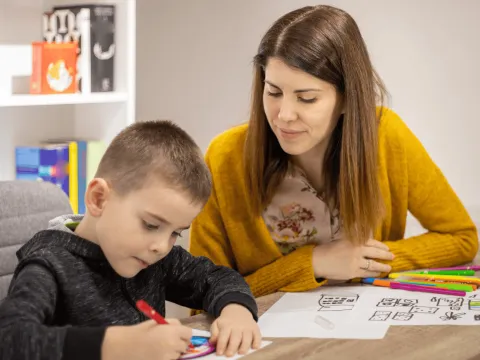- AdventHealth

Choose the health content that’s right for you, and get it delivered right in your inbox.
If you’re a caregiver to a person with Alzheimer’s disease or have a loved one with it, you’re already familiar with the day-to-day challenges and the heartbreak caused by this illness. Alzheimer’s is a progressive disease that starts with mild memory loss. But it may lead to the inability to carry on a simple conversation and everyday activities. The most common form of dementia, it affects parts of the brain that control thought, memory and language.
Since Alzheimer’s disease can cause patients to withdraw from and forget about people, interests and hobbies that once brought them joy, the path of least resistance is taken all too often by those around them with the logic that there’s nothing more than can be done to help. However, the opposite is true.
Remember that your loved one is still the same person you’ve known and loved for years, and it’s especially important to help them lead the best quality of life possible. By keeping them engaged and offering support in body, mind and spirit, the effects of Alzheimer’s disease may be reduced. We’re here with practical ideas to help you to help your loved one live their best life.
Keep Them Mentally Engaged
Keep your loved one with Alzheimer’s mentally stimulated with activities like puzzles, music, reading the newspaper and carry on conversations as normal. These are all things that can be done together so they feel seen and heard as well.
Encourage Physical Activity
There are so many options to help keep your loved one physically active to their ability and comfort level. This is also a great way to keep them socially engaged. You can go on walks together, bike rides, take care of a garden, bake together and more.
Provide Choices and Easy-to-Follow Directions
Without giving an overwhelming number of choices, giving your loved one enough choices provides them with a sense of autonomy. You can give a few options of what they might like for dinner, ask if they want coffee or tea, and if they like it hot or cold.
Keep them involved by having them do things like set the table for meals. Give instructions that are simple and to the point.
Keep Their Environment Safe
According to Mayo Clinic, “Dementia impairs judgment and problem-solving skills, increasing a person's risk of injury.”
To encourage safety, keep these best practices in mind:
- Prevent falls by avoiding rugs, extension cords and any clutter that could cause falls
- Install handrails or grab bars in critical areas
- Install locks on cabinets that contain anything potentially dangerous, such as medicine, alcohol, guns, toxic cleaning substances, sharp utensils and tools
- Lower the thermostat on the hot water heater to prevent burns
- Keep matches and lighters out of reach
- Ensure smoke detectors and carbon monoxide detectors have fresh batteries
Offer Flexibility
Staying flexible to your loved one’s needs will demonstrate your unconditional support. A person with Alzheimer’s may not seem flexible, but remember that’s the nature of their illness. Try not to become frustrated by repetitive behaviors, forgetfulness and any ways Alzheimer’s manifests for them as an individual.
Learn About Alzheimer’s Disease
By educating yourself about Alzheimer’s disease, you’re better equipped to know what to expect and how to respond. Information builds compassion and your loved one who is living with Alzheimer’s disease will benefit from your dedication to caring for them in the ways they need most.
Lean On Us for Support
When the time comes that you’re unable to care for your loved one by yourself anymore and they are showing signs they may need hospice care, know that you won’t be alone. Our caring hospice team is here to provide comfort, pain management and quality of life care you and your loved one needs to enjoy each moment together with grace and dignity.


